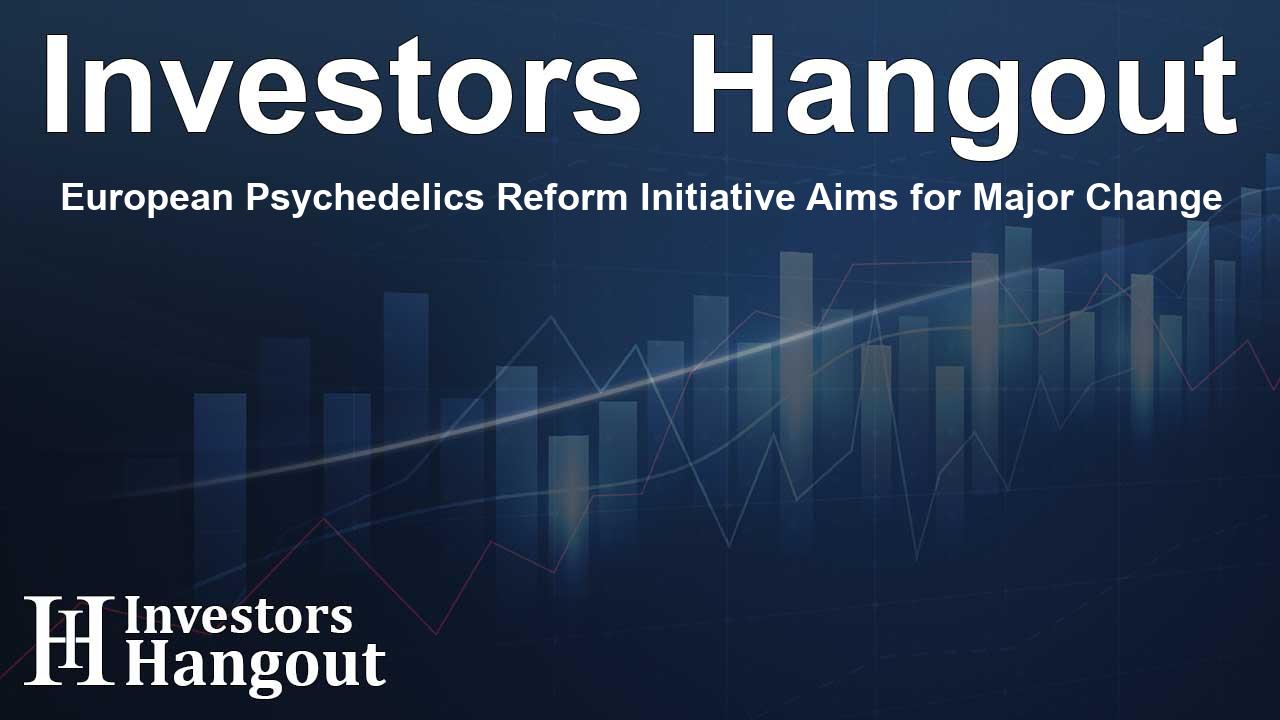European Psychedelics Reform Initiative Aims for Major Change

European PsychedeliCare Initiative Aims for Transformation in Mental Health Care
The European Commission has registered the PsychedeliCare initiative, marking a significant step toward creating a legal framework for psychedelic-assisted therapies aimed at treating mental health disorders. This initiative is designed to foster progressive regulations regarding such therapies across the European Union.
Aiming for a Robust Legal Framework on Psychedelic Therapies
The PsychedeliCare initiative is backed by a diverse group of professionals, including scientists, medical doctors, therapists, and human rights advocates. These individuals come together under the common aim of providing access to safe and regulated psychedelic-assisted therapy throughout Europe. Their collective goal is to ensure that people can benefit from scientifically-supported treatments that are both ethical and effective.
Emphasizing Expert Consensus
The initiative emphasizes the importance of establishing standards in psychedelic-assisted therapy. This includes training for therapists, ethical guidelines, and safety measures to go hand-in-hand with these innovative treatments. Moreover, the organizers advocate for EU-funded research, paving the way for stronger evidence regarding the safety and effectiveness of psychedelic therapies for managing mental health issues.
The Economic Burden and Urgency for Change
The call for reform comes in light of staggering statistics regarding the economic impact of mental health disorders in the EU, estimated to cost around $669.4 billion annually. Alarmingly, it is reported that nearly half of psychiatric patients do not respond to existing treatments. This scenario highlights the pressing need for novel solutions, such as psychedelic therapies, to better address these mental health challenges.
Regulatory Disparities in Mental Health Treatments
While the last three years have seen only one new psychiatric treatment approved in the EU, the field of oncology witnessed 68 new treatments. This discrepancy accentuates the need for innovation in mental health care, making the PsychedeliCare initiative vital to catalyzing new therapeutic options.
Global Trends and Support for Psychedelic Therapies
Observing global movements, the PsychedeliCare organizers refer to significant advances outside Europe, where countries like the United States and Canada have started recognizing the potential benefits of psychedelic-assisted treatments. For instance, the FDA has granted breakthrough therapy designations for substances like MDMA and psilocybin, showcasing a shift in perception toward these forms of treatment.
Encouragement for EU to Innovate
With these international developments serving as a backdrop, the PsychedeliCare initiative aims to inspire action within the European Union, promoting research and development in the arena of mental health therapies.
Strategies for Collection of Signatures
To advance this cause, the initiative outlined a plan to collect 1 million signatures within a year. Achieving this goal necessitates gathering support from at least seven EU countries. Upon reaching this milestone, the European Commission would be obliged to consider the implications and potential actions regarding psychedelic-assisted therapy regulations.
Prospects for Footballing as a Global Hub
Ultimately, the PsychedeliCare initiative strives to position Europe as a leader in the field of psychedelic therapy innovation, ensuring that advancements in mental health care become more accessible to those in need.
Frequently Asked Questions
What is the PsychedeliCare initiative?
The PsychedeliCare initiative is an effort to create a legal framework for psychedelic-assisted therapies aimed at treating mental health disorders throughout the European Union.
Why is there a focus on psychedelic-assisted therapy?
There is a significant need for innovative treatment options, as many individuals do not respond to conventional psychiatric treatments. Psychedelic-assisted therapies offer a promising alternative.
How many signatures are needed for the initiative to move forward?
The PsychedeliCare initiative aims to collect 1 million signatures from supportive individuals across 7 EU countries within one year.
What is the economic toll of mental health disorders in the EU?
According to estimates, mental health disorders impose an annual economic burden of around $669.4 billion in the European Union.
How does the initiative plan to ensure safety and efficacy?
PsychedeliCare includes calls for stringent standards for therapist training, ethical guidelines, and safety measures to guarantee responsible practice in psychedelic-assisted therapies.
About Investors Hangout
Investors Hangout is a leading online stock forum for financial discussion and learning, offering a wide range of free tools and resources. It draws in traders of all levels, who exchange market knowledge, investigate trading tactics, and keep an eye on industry developments in real time. Featuring financial articles, stock message boards, quotes, charts, company profiles, and live news updates. Through cooperative learning and a wealth of informational resources, it helps users from novices creating their first portfolios to experts honing their techniques. Join Investors Hangout today: https://investorshangout.com/
Disclaimer: The content of this article is solely for general informational purposes only; it does not represent legal, financial, or investment advice. Investors Hangout does not offer financial advice; the author is not a licensed financial advisor. Consult a qualified advisor before making any financial or investment decisions based on this article. The author's interpretation of publicly available data shapes the opinions presented here; as a result, they should not be taken as advice to purchase, sell, or hold any securities mentioned or any other investments. The author does not guarantee the accuracy, completeness, or timeliness of any material, providing it "as is." Information and market conditions may change; past performance is not indicative of future outcomes. If any of the material offered here is inaccurate, please contact us for corrections.